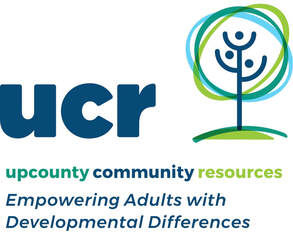|
Just a couple thoughts about how to discuss the events planned and surrounding the Inauguration. This is from my own personal experience with our family, my (behavior & trauma) training, and the hundreds of families I've counselled throughout the years. I am not a certified psychologist, just a mom with a psychology major, extensive experience with trauma from autism, behavior management experience and this crazy little thing called life.
Always remember that our young adults absorb our feelings and magnify them. Keeping calm or perceived calm will help our loved ones deal. If they see we are not worried about anything, they won't see the reason to worry. Conversely, if they see us crying, they are likely to fall apart. Set aside time to talk about this every day. Bottling up lots of confusion and powerful visuals can lead to behaviors rooted in fear and chaos. Limit access to media reports. I don't say this flippantly... really limit or don't even turn the news on. It is confusing enough for most of us, can you imagine how terrifying it is for our loved ones, who struggle to put their world together on "normal" days. Fielding questions open and honestly is always the best policy, but that doesn't mean reveal every single detail. I would encourage these conversations with; "do you have any questions about what is happening in Washington?" Then wait. It could come out as silence or as one word: Scared. If that's the case validate their feeling and remind them they are safe because you are going to keep them protected. Acknowledge you are feeling the same. If the word is: why? Explain very basically the ideals of both sides. I always try to say there is very bad behavior and choices, but I hate to say there are "bad" people. There are many people I don't agree with and our family doesn't agree with, but we are not to judge who is "good" and who is "bad", if we can help it. I tend to discuss everything in emotions, something very basic to all of us. Everyone has feelings. ALL feelings are OK! "How does it feel when you are very frustrated?" "Do you feel sad when people don't listen to you?" (You could use visuals here with different facial expressions.) "Do you have big feelings when you are angry?" "Sometimes those emotions overflow and come out as tears or rage." (You could use a crying and angry face together.) "Sometimes I can be so angry I want to hit something." "There are positive ways to deal with these big feelings." "Hurting others is not how to deal with these feelings." "Let's think about things to do when we have big feelings." "Even adults can make quick and not-so-great decisions." "Some people feel like they are not treated fairly." "Nobody is perfect." I tend to always answer with a reinforcement first, even if you don't agree. That looks like; "Thank you for sharing that honest feeling or it is amazing you can identify that feeling." Then go into an answer that does not chastise or cut down anyone... remembering that hate and prejudice are taught. "Many people feel like they are not heard and they want their voices heard. I don't agree with the violence, but that shows the intensity and depth of their big emotions too. We need to be able to listen and talk about our feelings." Never condone violence, but offer other ways to solve problems. Maybe discuss options. I realize none of this is easy. I have those big feelings too and my emotions seem to flow out of my eyes daily. Feel all the feels and steel yourself for these conversations. Hope this helps. I know many of our members are beyond this type of very simple language, but I find going back to the basic and roots of emotion is sometimes reassuring and easy. Feel free to reach out to us at any time. I'm here to help you.
0 Comments
|
Jenn Lynn EXECUTIVE DIRECTORArchives
December 2021
Categories |
This site is maximized best using Google Chrome browser.
|
© 2013 --
Upcounty Community Resources, Inc P.O. Box 2982 Germantown, MD 20875-2982 240.614.0444 |
| |||||||||||||||||||

 RSS Feed
RSS Feed
